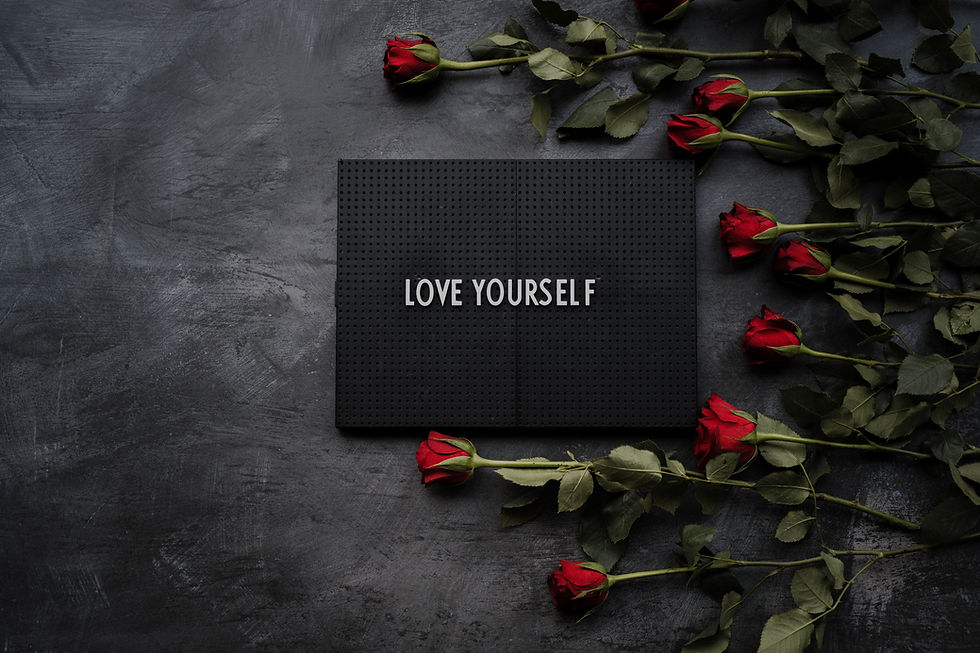Silence of the Lamb: When Quiet Is Stronger Than a Comeback
- Nicole Clement

- Jul 1, 2025
- 3 min read

Introduction
In a world that rewards quick comebacks, instant responses, and the need to prove a point, silence is often mistaken for weakness. People assume that if you don't clap back, you're soft. If you don’t defend yourself, you must not have a strong enough argument. But here’s the truth:
Silence isn’t passive. It’s intentional.
And sometimes, it’s the most powerful response you can give.
As a mental health coach and a woman of faith, I’ve learned that not everything requires a reaction. Silence can be a boundary. A decision. A declaration that you will not entertain chaos, manipulation, or distraction. It’s not avoidance—it’s authority.
When Silence Is Misunderstood
There’s a cost to being misunderstood, especially when your silence is seen as surrender.But silence isn’t about giving up. It’s about choosing where to invest your energy.
Sometimes you stay quiet to preserve your peace.
Sometimes you stay quiet to let God fight for you.
And sometimes, your silence is the clearest message you can send: I’m not available for that kind of chaos anymore
Jesus Modeled This
"But Jesus remained silent.” — Matthew 26:63.
When Jesus stood before the chief priests and elders, they hurled accusations at Him. He could have silenced them with a word—but He didn’t. Why?
His silence was not fearful. It was not submission.
His silence was a demonstration of trust in God’s plan, not man’s approval.
It takes strength to stay silent in the face of accusation. It takes spiritual maturity to not explain yourself to people who have already decided what they believe.

The Mental and Emotional Strength of Silence
As a mental health coach, I’ve seen how silence serves people in ways talking never could. Here’s what silence does when used with intention:
It Protects Your Peace
You don’t need to enter every argument. Silence allows you to disengage from unnecessary emotional labor.
It Reveals Your Discipline
Choosing not to react speaks volumes about your emotional intelligence. It shows you can pause, reflect, and respond later—if at all.
It Breaks the Cycle
Some people feed off chaos. They want a reaction. Silence interrupts their pattern and forces them to sit with their own behavior.
It Re-centers You Spiritually
Psalm 46:10 says, “Be still, and know that I am God.”Silence is not just the absence of noise—it’s the presence of God. It creates space to hear Him clearly when everything else is loud.
When to Choose Silence
Not all silence is helpful—there are times when your voice matters. But when you’re:
Being baited into drama
Feeling emotionally exhausted
Battling false narratives
Trying to preserve your sanity
…silence can be your boundary. Your pause. Your power.
A Personal Reflection
There have been times in my own life when people expected a reaction—especially in moments of betrayal, disrespect, or false judgment.And I’ve felt that tug: “You need to defend yourself.” But I’ve also learned that sometimes God does His best work when I stop trying to control the narrative and instead rest in the fact that He knows. And that’s enough.
Questions for Reflection
Who or what keeps pulling you into unnecessary emotional battles?
When was the last time silence brought you clarity?
What would it look like to stop reacting and start reclaiming your peace?
Conclusion
Silence is not weakness. Silence is wisdom.
Jesus didn’t lose power when He stayed quiet—He demonstrated where real power comes from.So the next time someone mistakes your silence for surrender, remember:
You’re not shrinking—you’re standing.
You’re not avoiding—you’re anchored.
You’re not weak—you’re wise.
If you’re in a season where silence feels misunderstood, and you need space to process without pressure, coaching can help. Let’s walk together as you reclaim your voice, your peace, and your power—whether through stillness or speech.


